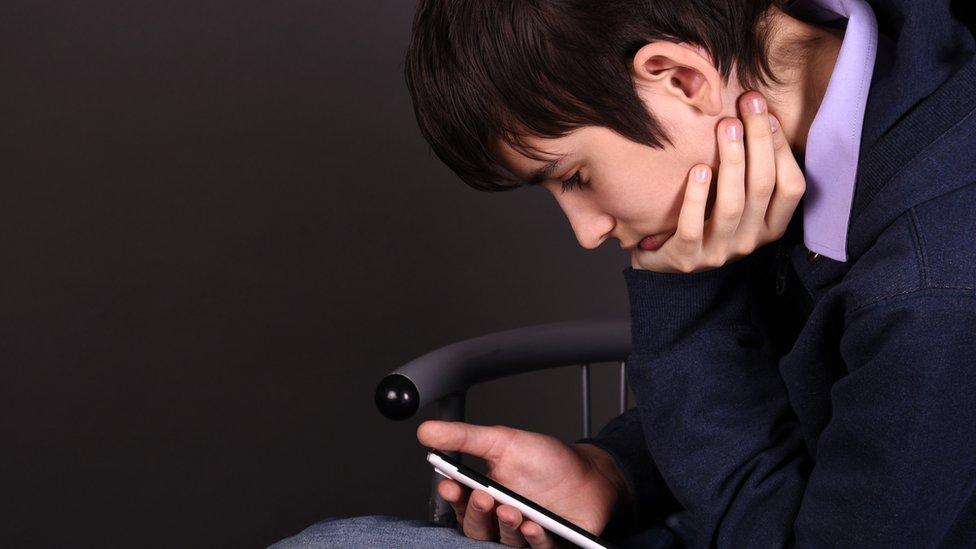Online grooming leads to assaults, charity warns
- Published
A father recounts story of his son's online grooming by a number of men.
The charity Barnardo's says many of the children it has counselled, after they became the victim of online grooming, were later assaulted by their abuser.
Barnardo's said of the 702 children it had supported over the past six months at five specialist units across the UK, 297 had been groomed online.
Of these, 182 had met their online groomer and suffered sexual abuse.
The charity said parents must to talk to their children about not revealing personal details to virtual friends.
The data - which was commissioned from Barnardo's by BBC Radio 5 Live - also found 146 children who were groomed online went on to be exploited by more than one person.

A father's story
One father, whose 13-year-old-son was groomed online by multiple men aged between 20 and 50, said the perpetrators brainwashed his son.
"They were businessmen, teachers, and bus drivers. There was no common feature among them other than that they were all groomers and abusers.
"In some cases he [our son] would be in the same room as us with his laptop and as far as we were concerned he was talking with his friends or playing games and a lot of the time he was.
"But there were also times when he would be texting or communicating with these people.
"By the time we discovered it all they had brainwashed him. The groomers had persuaded him that they were his friends.
"It's like a wedge - they drive that wedge between the young victim and his family so that he saw us and others that were trying to help as the enemy and that emotional wedge is difficult to remove."
All the men who groomed and sexually abused the child in question are now in prison.

Jacqui Montgomery-Devlin, children's service manager for one of the Barnardo's centres which took part in the survey, said over the past five years they had seen an increase in the number of children being groomed over the internet and then going on to be sexually exploited and assaulted in person.
"The children referred to us who are being groomed online are still living at home and are often excelling at school with none of the very obvious vulnerabilities that we might see in some of the other children we work with.
"Mum and dad perhaps think their child is safely tucked up in their bedroom. But they may be communicating with groomers."

Barnardo's chief executive Javed Khan said: "This new research shows just how susceptible children are to being groomed online and then sexually abused offline.
"We're not talking about stereotypical vulnerable victims either - they can be anyone's child with access to mobile technology.
"Children make friends very quickly with people they've only just met online. They don't regard them as strangers, or see the risks they might pose".
A survey for Barnardo's last year revealed almost half of young people (48%) living at home said their parents only knew some of what they did online.
One in nine (11%) admitted their parents understood nothing about their online activity.
A third of young people (33%) questioned said they found it easier to show their real personality on the internet than with people face-to-face.